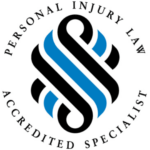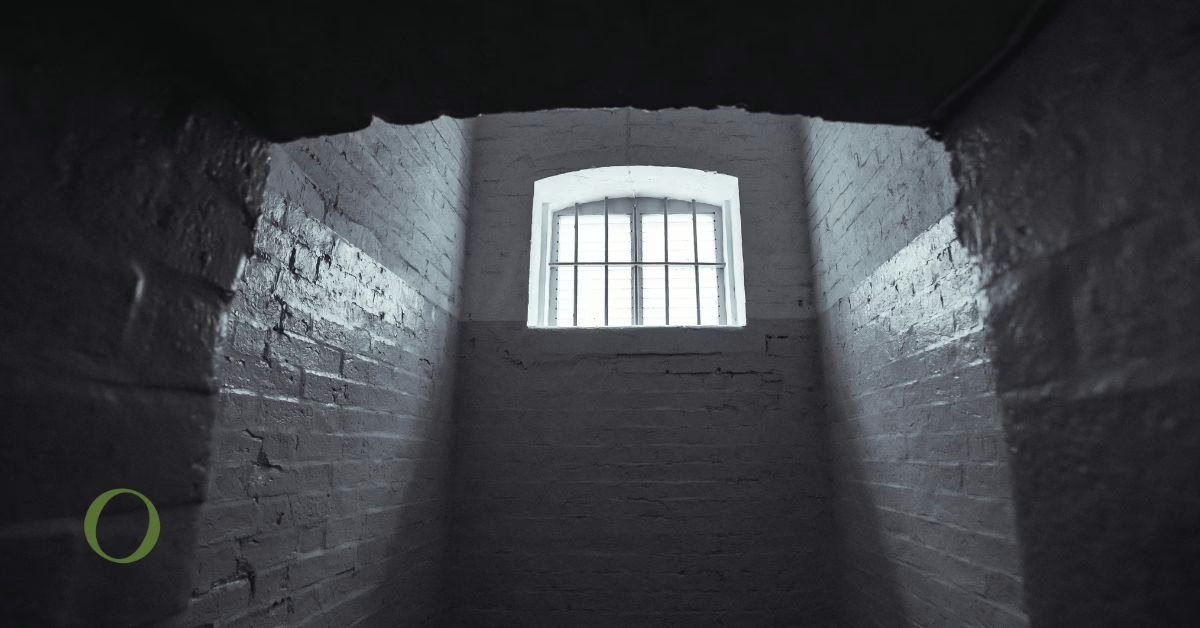Expert Lawyers for Suing the Police in Sydney
Holding Law Enforcement Accountable for Unlawful Arrest, Abuse, and Misconduct
Trusted & Recommended by Clients. Let by Accredited Specialists
4.6 – 120 Reviews


The O'Brien Advantage
Proven Expertise
We are Australia's leading law firm for actions against law enforcement. Our team has unparalleled experience and a formidable reputation in suing the police for misconduct. We are known for our commitment to holding police accountable.
Record of Success
We have a consistent track record of winning cases and securing significant compensation for clients who have suffered from police misconduct. Our victories demonstrate our dedication to protecting the rights of individuals against unlawful actions by authorities.
Personalised Strategy
We understand the sensitive and often intimidating nature of these claims. Our lawyers provide a compassionate and client-focused approach, taking the time to understand your situation and creating a legal strategy tailored to achieve the best possible outcome for you.
No Win, No Fee*
We handle most claims against the police on a no win, no fee basis. This ensures you can access top-tier legal representation to challenge police misconduct without any upfront costs or financial risk. You will not pay our legal fees unless we win your case.
Types of Police Misconduct Cases We Handle
Unlawful Arrest
If you were arrested without legal justification, you may be entitled to claim compensation for the deprivation of your liberty. Our lawyers are experts at identifying and proving when an arrest is made unlawfully.
False Imprisonment
We represent clients who were detained against their will without lawful authority. This can include being held in a police vehicle, confined to a police station, or prevented from leaving a specific location without proper cause.
Police Abuse & Assault
Our team is dedicated to fighting for justice for victims of excessive force, police brutality, and physical or verbal intimidation by officers. We hold officers accountable for assault and battery committed while on duty.
Malicious Prosecution
We act for individuals who have been wrongly prosecuted by police, where the charges were ultimately dropped or they were found not guilty in court. A successful claim requires proving the prosecution was initiated with malice and without reasonable grounds.
Misfeasance in Public Office
This claim applies when a police officer knowingly uses their power for an improper purpose, causing you harm.
Other Police Misconduct
Our expertise also covers cases involving illegal searches of your person or property (trespass), misfeasance in public office (abuse of power), and intimidation or harassment by police officers.
Protecting Your Rights: How We Win Your Case
At O’Brien Criminal and Civil Solicitors, we understand the complexities of bringing a claim against a state institution. Civil claims against the police are hard-fought, and our lawyers employ a strategic, multi-faceted approach to secure justice for you.
Investigating Claims
We conduct a thorough investigation into the incident, gathering all available evidence such as police records, body-cam footage, witness statements, and expert reports to build the strongest possible case.
Negotiating Settlements
Many cases are resolved through negotiation or mediation. Our lawyers are expert negotiators who will attempt to secure a favourable settlement without the stress and cost of a trial.
Litigating in Court Proceedings
If a fair settlement cannot be reached, we are prepared to take your case to court. Our team consists of fearless litigators with an unparalleled track record of winning difficult cases against the police in court proceedings.
Meet Our Specialist Police Misconduct Lawyers
With over two decades of experience, our civil law team has established O’Brien Criminal & Civil Solicitors as one of Australia’s leading firms in actions against the police. Led by firm founder and Principal Solicitor, Peter O’Brien, our dedicated team has successfully represented clients across the country, including in landmark cases.
No matter the circumstances of your case, our police misconduct lawyers will provide you with clear, direct advice and a strategic roadmap to achieve the best possible result in the most economical way.

When you work with O’Brien Criminal & Civil Solicitors, you are guided by Law Society Accredited Specialists in both Criminal and Civil Law. To earn this title, a lawyer must pass a demanding, structured assessment that proves their exceptional skill and expertise. This accreditation is your assurance that your case is being handled by a practitioner who has been officially recognized as a leader in their field.

The Civil Law Claims Process
1. Free Initial Consultation
Contact us for a free, no-obligation discussion. We will assess the details of your incident, advise on the strength of your claim, and explain the legal process.
2. Investigating & Building Your Case
Your dedicated lawyer will keep you informed at every stage. We handle all communications with the police and their lawyers, ensuring you understand the progress of your case in clear, simple terms.
3. Communication & Updates
Your lawyer will keep you informed about the progress of your case, explaining legal processes in clear terms. You'll collaborate with your lawyer to review documents and make key decisions.
4. Pursuing a Resolution
We aim to resolve your claim through strategic negotiation to secure a favourable settlement. If a fair settlement cannot be reached, our expert litigators are fully prepared to fight for you in court.
Remember: Civil law is complex and seeking expert legal advice is crucial. Our experienced civil solicitors are here to guide you every step of the way and fight to protect your rights.
What to Do After an Incident with Police
If you are seeking justice for wrongful actions by police, civil law provides a powerful means to hold them accountable. While the process can be complex, taking the right steps immediately after an incident is crucial to building a strong case and protecting your rights. Here is what you need to do:
- Document Everything Immediately
- Write down every detail you can remember about the incident. Note the date, time, location, the officers' names and badge numbers, what was said, and the sequence of events. Do this as soon as possible while the memory is fresh.
- Gather Evidence
- If you have any visible injuries, take clear photographs immediately . See a doctor to have your injuries officially recorded . Collect the names and contact information of any witnesses who saw what happened. Keep copies of any documents, fines, or charges you were given.
- Seek Legal Advice Urgently
- There are strict time limits for suing the police. Contacting a specialist civil lawyer quickly is the most important step you can take. An experienced lawyer will provide an honest assessment of your case, advise you on your rights, and develop a strategy to pursue your claim for compensation.
Remember: Don’t Face Them Alone
Taking action against the police is daunting, but you don’t have to do it by yourself. Let the police misconduct experts at O’Brien Criminal and Civil Solicitors guide you and fight for your rights. We will work tirelessly to secure the justice and compensation you deserve, whether through tough negotiation or in court.
If you have been the victim of unlawful arrest, false imprisonment, or police brutality, we are here to help. Plus, with our no-win, no-fee* arrangement for most police claims, you can seek justice without financial risk.
Voices of Justice: Client Reviews
Read what clients of O’Brien Criminal and Civil Lawyers have said in Google Reviews after we’ve helped clients restore their good names.
William Spedding
Peter O'Brien (with his superb team) has been a phenomenal blessing to me. He believed me, supported me, and undertook extensive detective work and archive research in the preparation of my case culminating in a legal precedent that will be referred to by future court decisions. It has been a stressful 9 years from beginning to end and Peter was steadfast the entire time. Thank you Peter
Mr Garfield
Absolute best in the business, I had the pleasure of Peter running one of my civil cases and to say he and his team went above and beyond is an understatement, Peter and his team are both professional and friendly, can't thank you guys enough, one would say the Lamborghini of defence.
Ruen Motto
Used O'Brien solicitors for both my criminal law case which they managed to get all charges dismissed when I was looking down the barrel of 18 months jail. Then even more impressively ran my civil claim vs the police and I got a very good outcome and substantial pay out. Easy to talk to and actually listened and took my opinion into consideration which is a first. Highly recommend!
Daryl Ryan
I contacted O’Brien Solicitors after an incident involving NSW Police. The matter was based around Police behaviour in a Domestic Violence situation involving myself and members of my family. After hearing the details, Peter agreed to represent us on a no-win no-fee basis. Although potentially extremely stressful, Peter and his team made the whole process a lot easier than I had anticipated. The whole team at O’Brien's were terrific. The matter was settled and we were very happy with the outcome and, as promised, there were no fees payable by us. I couldn’t recommend this firm highly enough.
Madeline Hayman-Reber
I first got in touch with O'Brien's after I posted online about my family member's situation. Peter O'Brien messaged me personally and referred me to two amazing lawyers in his firm; Wilson and Sidnie. Outstanding attention to detail and empathy. Legal Aid was available, and the case was handled with a lot of care which led to a very positive outcome. Additional legal support was offered following the outcome, without having to ask. Highly recommended for both criminal and civil matters. Thank you!
William Hall
They stick up for the little guy. Keep it up!
Samira Bakhshi
O'Brien solicitors represented me in very complicated civil proceedings. From day one, I was greatly impressed by the knowledge and professionalism of the entire team at O'Brien solicitors. After a year of court proceedings, the matter was finalised in my favour and I could not have expected such a great outcome.
James Supple
O'Brien Solicitors are a highly capable and professional team who are very generous with their time and are willing to pursue justice against those powers that be. Peter and Sidnie agreed to represent the Refugee Action Coalition at short notice in court to defend the right to protest and prepared an excellent defence. They come up with legal avenues and solutions that many others have missed. Highly recommended. After a year of court proceedings, the matter was finalised in my favour and I could not have expected such a great outcome.
Susan
Ordinary people standing up against inhumanity, abuses of power and for a better world need to know someone has their back when their own rights are abused. Thank you.
John S
As a victim of police brutality, I was dismayed by the total lack of concern and a refusal to investigate the complaint I made in writing to the NSW Police and NSW Ombudsman. Even before I contacted Peter O'Briens Solicitors, I was encouraged by the information and positive attitude shown on their website. Peter O'Brien and the team at O'Briens Solicitors have been wonderfully helpful and supportive in seeking legal redress through the Courts. I wholeheartedly recommend Peter O'Brien’s Solicitors to anyone who has experienced police misconduct and had their rights trammelled by heavy-handed police officers.
FAQs
What constitutes police misconduct?
Police misconduct is any unlawful, criminal, corrupt or inappropriate conduct by a police officer, whether on or off duty. This includes:
- Excessive force or assault
- Wrongful arrest
- False imprisonment
- Malicious prosecution
- Unlawful searches
- Trespass
- Corruption
- Breach of duty
- Abuse of authority
In NSW, police misconduct is defined under the Law Enforcement Conduct Commission Act 2016 and covers any actions that violate your legal rights or proper policing standards.
How long do I have to sue the police?
You have 3 years from the date of the incident if your case involves personal injury (such as assault or psychological harm).
For non-injury claims like property damage or false imprisonment without injury, you have 6 years.
Courts rarely grant extensions to these strict deadlines, so it's crucial to act promptly.
Can I sue if I was charged with a crime?
Yes, absolutely. You can sue police for misconduct even if you were charged with a criminal offence. Your civil claim and any criminal proceedings are completely separate.
Many successful claims involve situations where:
- Charges were later withdrawn or dismissed
- You were found not guilty
- The charges are still ongoing
Being charged doesn't prevent you from seeking compensation for unlawful police conduct.
What does "no win, no fee" mean?
"No win, no fee" means you don't pay legal fees unless your case is successful.
If you win: Your legal fees are typically deducted from your compensation.
If you lose: You may still need to pay:
- Disbursements (out-of-pocket expenses like medical reports)
- Potentially the other party's costs
It's essential to carefully review your conditional costs agreement to understand what constitutes a "successful outcome."
How much compensation can I get?
Compensation varies significantly depending on your case. Factors include:
- Physical injuries
- Psychological harm
- Loss of income
- Legal costs
- Reputational damage
In NSW, settlements have ranged from thousands to hundreds of thousands of dollars. NSW Police paid out $33 million across 398 claims in 2020-21 alone.
Your solicitor can assess your specific case's potential value during a consultation.
Will the police officer who wronged me have to pay?
No. In NSW, you sue the State of NSW, not the individual police officer.
Any compensation awarded comes from the state government, not the officer's personal funds. This system ensures you can recover compensation regardless of an individual officer's financial circumstances.
However, your claim may trigger internal police investigations or disciplinary proceedings against the officer.
Will suing the police affect the officer's job?
Civil claims don't automatically result in disciplinary action or employment consequences for officers.
However, your lawsuit may prompt:
- Internal reviews
- Law Enforcement Conduct Commission investigations
- Potential disciplinary proceedings
While not guaranteed, successful claims can contribute to broader accountability.
What evidence do I need to sue the police?
Strong evidence is crucial. Gather:
- Witness statements – yours and from others present
- Medical records – documenting all injuries
- Photographs – of injuries or the scene
- Police documents – arrest records, court notices, body-worn camera footage
- Financial records – showing lost wages or expenses
- Correspondence – with police
- Video footage – from any source
- Text messages – relevant to the incident
Time-stamped details are vital. Your solicitor will help identify and obtain necessary evidence.
What is the difference between a police complaint and a civil lawsuit?
Police complaint:
- Administrative process reported to the Law Enforcement Conduct Commission or NSW Police
- Focuses on disciplinary action against officers
- Doesn't provide you with compensation
Civil lawsuit:
- Legal action in court seeking financial compensation
- Requires proof "on the balance of probabilities"
- Aims to compensate you for damages suffered
You can pursue both simultaneously – a complaint for accountability and a lawsuit for compensation.
How long will my case take?
Civil Law Case Studies
- Nicole Byrne
- October 15, 2025
Sexual Abuse by Police Officer: Brave survivor receives justice after suffering abuse by a
- Nicole Byrne
- October 2, 2025
Our client, Dan*, was a young Aboriginal man with complex mental health needs. He
- Nicole Byrne
- September 30, 2025
Security guards at a NSW sports game racially discriminated and falsely imprisoned our client
- Nicole Byrne
- September 4, 2025
Unlawful Search by NSW Police Officers: Our client, we’ll call him Terry, was a
- Nicole Byrne
- August 20, 2025
Young detainee unlawfully subjected to prolonged isolation, routine handcuffing and strip searches under DRMPs:
- Nicole Byrne
- August 15, 2025
The tragic loss of Aboriginal father, Dwayne Johnstone, leads to civil claim for psychiatric








Police misconduct cases typically take 12 to 24 months to resolve in NSW, though complex matters may take longer.
The timeline depends on:
Many cases settle before reaching court. Cases that proceed to trial take longer. Your solicitor will provide a realistic timeframe during your consultation and keep you informed throughout the process.